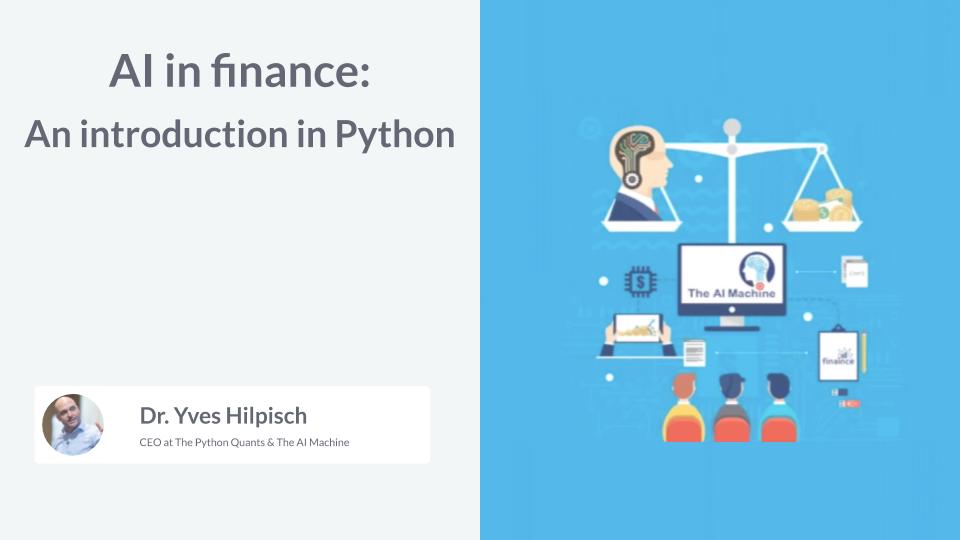Pular para o conteúdo principalSaiba Mais





Falantes

Dr. Yves Hilpisch
CEO at The Python Quants & The AI Machine
Treinar 2 ou mais pessoas?
Obtenha acesso à biblioteca completa do DataCamp, com relatórios, atribuições, projetos e muito mais centralizadosRelacionado
webinar
Deep Learning in Finance
Get an insider’s account of deep learning in finance.webinar
Webinar | AI, Finance, and Algorithmic Trading
Investigate how AI, ML, and data science impact finance and algorithmic trading.webinar
Machine Learning for Investment Finance
Discover the common use cases for machine learning in investment finance.webinar
Using Synthetic Data for Machine Learning & AI in Python
Rewatch this training to discover what synthetic data is, how it protects privacy, and how it's being used to accelerate AI adoption in banking, healthcare, and many other industries.webinar
Scaling AI Adoption in Financial Services
Explore regulatory AI initiatives in financial services and how to overcome themwebinar
Introduction to Creating AI Agents in Python (Part 1: Concepts)
Richmond Alake, Staff Developer Advocate for AI and ML at MongoDB, walks you through the basics of creating AI agents in Python.Join 5000+ companies and 80% of the Fortune 1000 who use DataCamp to upskill their teams.
Loved by thousands of companies
